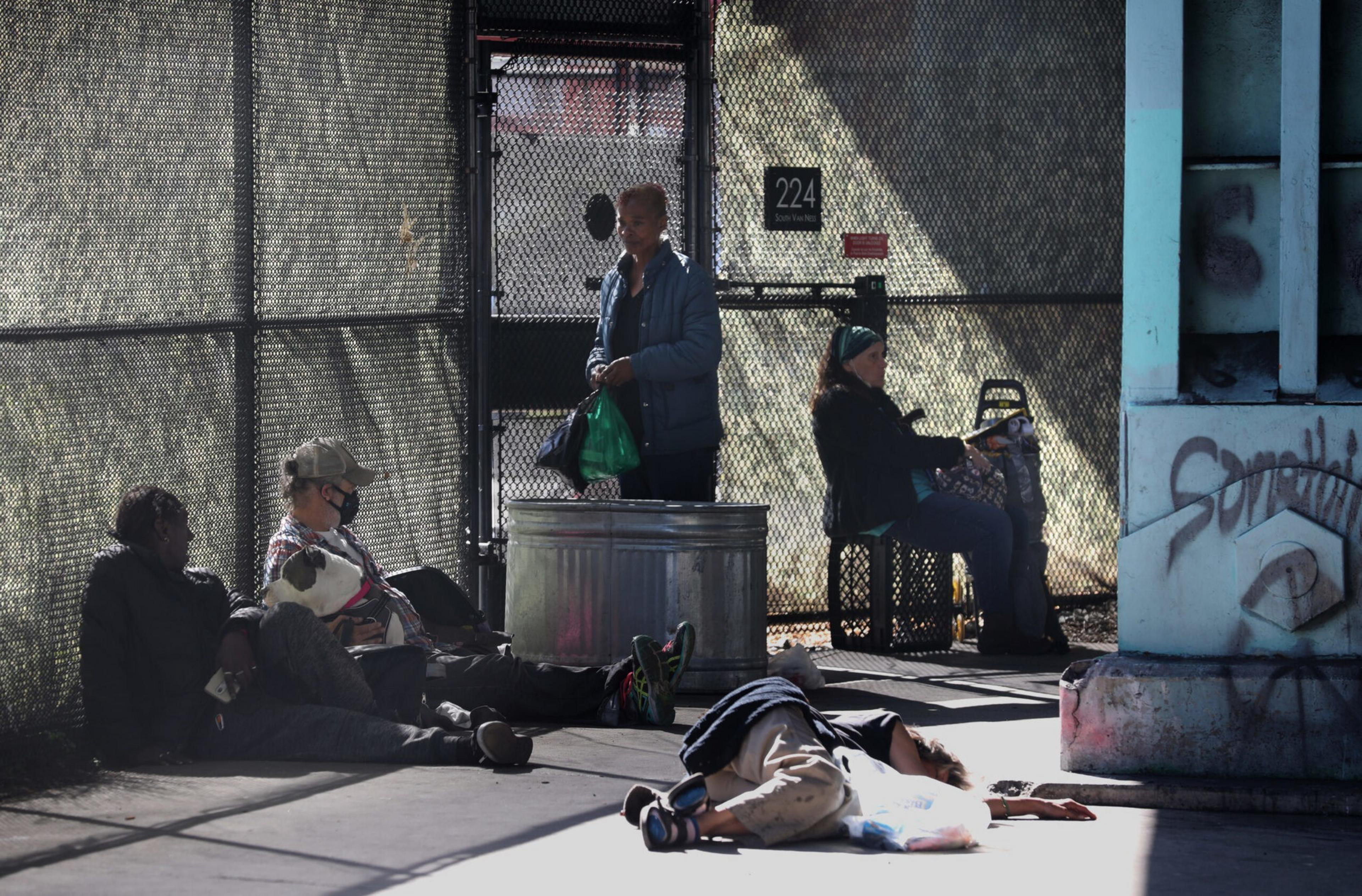Less than a week after San Francisco reopened its waitlist for homeless shelter beds, at least 124 people had applied and 113 of them were still waiting for a place to sleep.
The Department of Homelessness and Supportive Housing reopened the shelter waitlist last Wednesday after it was closed early in the pandemic in spring 2020. And as the list grows, so does anticipation that the true demand for shelter beds will soon become evident.
Many homeless people may be unaware of the new system, but the news is spreading on the streets through word of mouth. Some observers believe that the list could multiply exponentially in the coming weeks.
Christin Evans, who conducts regular outreach to homeless people and is a member of the Homelessness Oversight Commission, said she suspects the list may soon surmount 1,000 people.
“The word is just getting out,” Evans said.
The department reimplemented the waitlist due to an ordinance that passed in June 2022 that required the city to provide a shelter bed for every homeless person in San Francisco who wants one.
The new waitlist system (opens in new tab), which is in the pilot stage and offers spots at three of the city’s larger shelter facilities through an online portal or phone call, is reimagined from a pre-pandemic service that allowed homeless people to make shelter reservations on a phone hotline. That service was shut down when the city decided to permit unlimited shelter stays, instead of capping them at 90 days.
Over 4,000 people sleep on San Francisco’s streets every night, according to the most recent point-in-time count. The city has 3,078 shelter beds, but they are often at capacity, leaving room for emergency admissions of people released from hospitals or jails. Homelessness and Supportive Housing spokesperson Emily Cohen said the department is aiming to increase the occupancy of its shelters from 90% to 95% alongside the reopening of the waitlist.
Scrutiny over the city’s lack of shelter has intensified in recent months as the city faces a lawsuit from an advocacy group called the Coalition on Homelessness, which alleges the city has violated federal law by displacing and destroying homeless people’s encampments without providing them an alternative place to sleep.
In December, federal Judge Donna Ryu issued a preliminary ruling that sided with the coalition and prohibited the city from enforcing laws that criminalize sitting or lying down in public places. The city is still allowed to conduct outreach operations and enforce other laws related to the public right of way, cleanliness and drug use.
The city was unable to say how many total people had joined the waitlist and how many people had accepted shelter beds as of Tuesday. Eleven people were offered beds but had not accepted them yet, according to the dashboard.
“I think we’re still seeing the kinks worked out,” Evans said.
Evans described helping an elderly man apply for the waitlist on Saturday and said that he was number 87 in line on Monday. But because the man is in a wheelchair, she was worried that he won’t necessarily receive a bed when his number is called because he requires special accommodations.
“How is this person out on the street?” Evans said. “He’s in a wheelchair.”
Sharky Laguana, another member of the Homelessness Oversight Commission, said he was pleased that the city had reopened the list but said that the near-instant overflow likely indicates a need for improvements.
“If there’s one person on the list, that’s one too many,” Laguana said.
